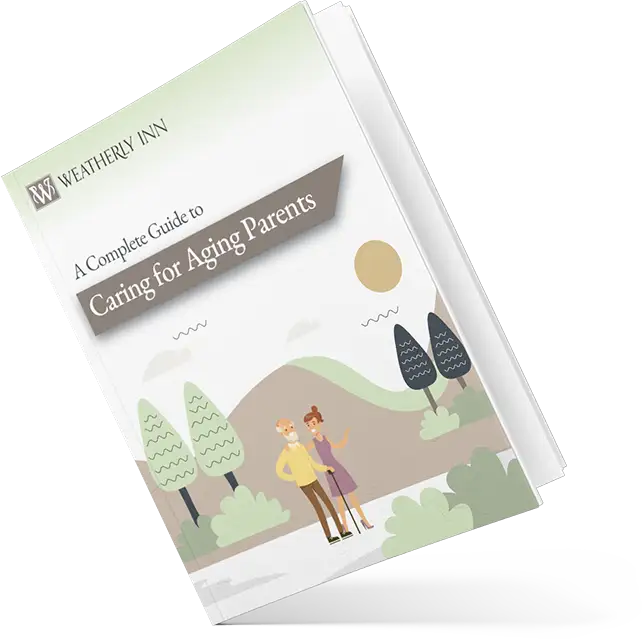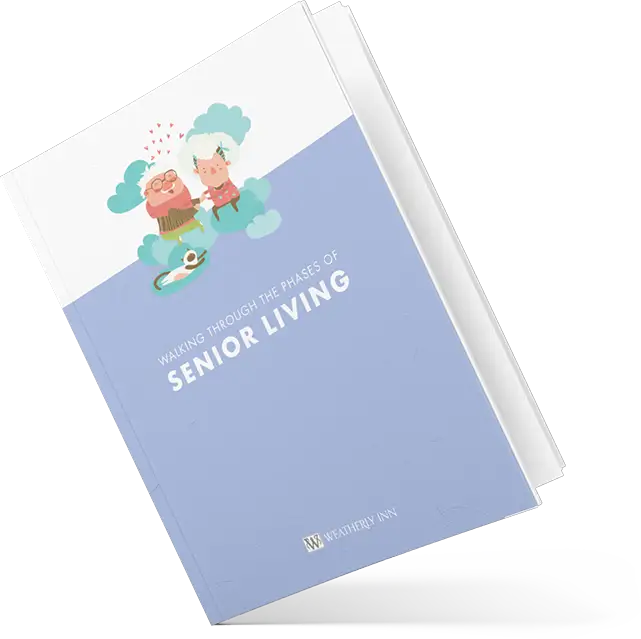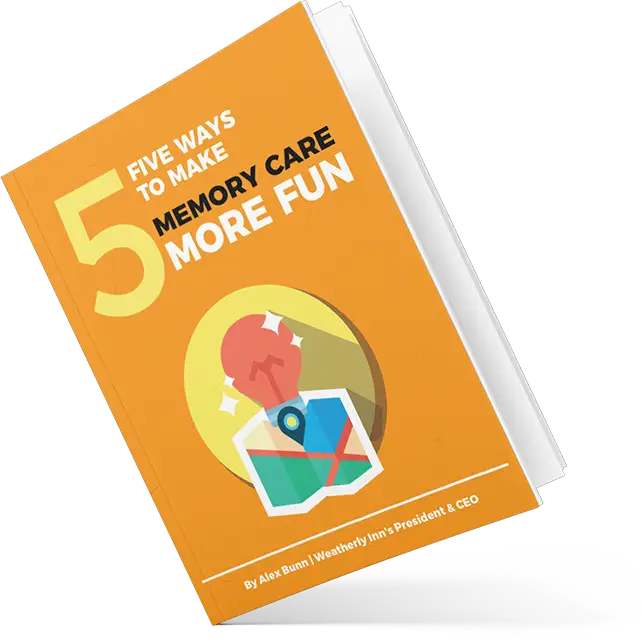September 18, 2019

When is the right time to move from assisted living to memory care?
The answer is, it depends. Everyone experiences dementia differently. Some loved ones can fully and comfortably live out their diagnosis in an assisted living community, even as they progress through the early stages of dementia. However, as the stages of Alzheimer’s progress, a better quality of life may necessitate moving your loved one from assisted living to memory care (also known as a memory care facility). That decision can be difficult, especially because you must make it on behalf of your loved one. And it may be even harder if they believe they’re doing just fine in assisted living. But transitioning to a memory care community can offer significant benefits and safety that often improve the quality of life for a loved one affected by dementia.
Memory care is a special variation of assisted living designed to provide a greater level of care for seniors living with some form of dementia. Since assisted living and memory care communities are similar, seniors transitioning from independent living to memory care still have the benefit of a senior living community, activities, 24-hour full-time staff members, meals, and assistance with activities of daily living. But the environment, care options, and lifestyle provided are carefully shaped to help seniors living with a memory loss disease, like Alzheimer’s disease. These aspects help seniors by reducing confusion, keeping them engaged, and encouraging a life filled with happy moments, all while remaining safe. The transition from assisted living to memory care can often be made smoothly in communities offering both assisted living and memory care.
One of the most critical questions for family members is, “When should I transition my loved one from assisted living to memory care?” Let’s take a closer look at the signs it’s time to transition to memory care.
Participation in Assisted Living Lifestyle
One of the early signs that memory care may be necessary is whether your loved one is still an active part of the assisted living community. Assisted living is designed to give seniors as much independence as possible, only stepping in to provide care services and support when a senior needs assistance. Restaurant-style dining and housekeeping, for example, remove the majority of constant physical strain from one’s lifestyle, while community and social activities provide ample opportunity to socialize and stay engaged.
Have you noticed your loved one stop participating in community events? Do they no longer take advantage of meals in the dining room without prompting, or seem disinterested in activities? These changes may be a result of their dementia making these things more challenging. Memory care could help them by providing a more guided experience that ensures they are still finding enjoyment, getting enough to eat, and remaining appropriately stimulated.
Requiring Help Beyond Assisted Living Services
If you find yourself providing more special care than you expected, or if your loved one is always in need of familiar companionship, this is another sign that a transition to memory care may be approaching. Assisted living is a living option meant to allow friends and family respite from constant care, yet the freedom to visit and socialize whenever they can. However, families starting to find that assisted living does not provide the care needs or depth of support needed by a loved one due to dementia should consider memory care as the next step. Your loved one may begin calling more frequently, asking you to stay longer, or just needing more during your visits.
Memory care is designed to help seniors not only live comfortably but also experience their senior living in a more guided and supported way. This includes helping them avoid overstimulation and situations that they have come to find upsetting, helping them to feel supported and safe, and helping loved ones to keep their visits more fun.
Regular Confusion and Losing Track of Life Activities
Mental continuity is a serious concern when a loved one has dementia. While you may be used to your loved one being a little confused sometimes or forgetting a few things, these signs can develop into a growing lack of independence. If your loved one is confused often, to the point that they are having trouble keeping track of their personal affairs or community activities, then it may be time to consider moving from home care, or an assisted living facility, to memory care.
Signs that dementia care may be necessary include increased confusion, piles of unopened mail, inability to understand their current medications or health care treatment plan, and regularly misplaced items. Extreme forgetfulness, like forgetting your visits or the friends they have made in the assisted living community, is also a sign that memory care might better support your loved one.
Maintaining Relationships with Seniors and Staff
As dementia progresses, a senior’s ability to maintain relationships also changes. They will need people around them who understand dementia and can provide a gentle form of company that does not demand consistent memory continuity. Most seniors in assisted living are not experiencing dementia and are not trained in supporting relationships with a dementia patient.
However, both the skilled nursing provided and the staff in memory care, understand dementia, and can help residents maintain relationships with both staff and other residents. Furthermore, memory care staff can help coach family and friends on how to communicate with their loved ones to produce happy and rewarding interactions. If your loved one is having difficulty maintaining relationships or seems to be withdrawing from their friends in assisted living, or even forgetting their friends in assisted living, it may be time to make the transition to memory care.
Confidence and Happiness
Finally, watch for signs of depression or decreasing confidence. A loved one that was once independently enjoying their assisted living community can become depressed, withdrawn, or lack their old confidence in making decisions. These are likely signs that they are suffering from increased dementia symptoms. Many seniors in this situation realize that they don’t remember what they should, feel overstimulated in social settings, or simply don’t remember their usual routines causing them to withdraw.
The most important factor is your loved one’s happiness and safety. If they are no longer happy or able to participate in assisted living socialization and activities, they may be more stimulated in memory care. Nurses, caregivers, and lifestyle staff can help residents in memory care to socialize, remember what matters to them, and guide them through an active and fulfilling daily schedule.
—
Is it the right time to move your loved one from assisted living to memory care? A little forgetfulness is normal with age. But if your loved one is regularly confused, depressed, or has stopped managing their life, even with the help of assisted living, it may be time to make the transition. Memory care can provide significant improvements to your loved one’s experience with care tailored to both their physical and mental needs. In memory care, your loved one can receive support in maintaining their memory, their relationships, and their active enjoyment of daily activities.
Before you choose, it is vital to take the time to explore a long-term care community and talk to staff to make sure your loved one will be happy in the memory care community you choose. Investigate the rooms, public areas, activity calendars, and how other families are enjoying their experience. Ask about how memory care is handled and what the community does to help seniors in memory care live enriching lives. Please contact us if you’d like to know more about how Weatherly Inn creates a supportive and enjoyable memory care experience.



